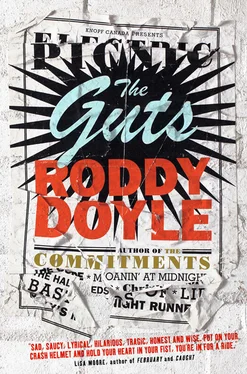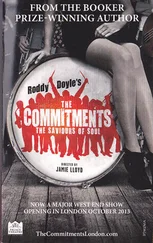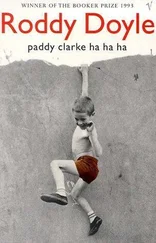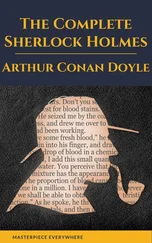— No!
He stopped.
— Let Ocean do it.
— Okay, said Jimmy. — Fair enough.
He got out of her way.
— Anyway, he said, to Ocean. — That line, I’m traipsin’ the world.
— I love it.
She slid the record into the purple sleeve.
— Me too, said Jimmy. — But — here’s why I was wonderin’ about adjustin’ her name a bit.
— What? said Norman.
— Well, said Jimmy. — If she was American. A blues singer.
— Black?
— Is there any other colour? said Jimmy. — Anyway, when she sang that word traipsin’, we’d know she meant a bit more than just traipsin’. Walkin’ around, like.
There was no distance between his brain and his mouth; that tube had come out with the surgery, into the bucket with the bowels. And the smile — the grin. He could feel it in his skin. It belonged to a man who knew he’d be wanting to vomit and die in less than forty-eight hours.
— What’re you talking about? said Norman. — Are you talking about sex, by any chance?
— Yeah, said Jimmy.
— And you think that line is about sex?
— No, said Jimmy. — It’s what can be suggested.
— It’s a girl with a lovely voice who misses her dog.
— I know.
— And her mother!
— I know. I know. Just bear with me.
He talked to Ocean.
— A blues singer in America in 1932 could sing the word traipsin’ in a way that hid meanings from official America. She could have been singin’ about sex or —
He looked at Norman — he tried to.
— missin’ the sex.
— With her dog?!
— No, not with her fuckin’ dog. Jesus, Norman, I’d have thought that you of all people would’ve —
— What? said Norman. — Would’ve what?
Ocean rescued him.
— An Irish woman sings traipsing in 1932, she means, I guess, moving along slowly with a bundle on her back. An African-American woman sings it in 1932, and she means, okay, moving along slowly. But she also means fucking. That, I think, is what Jimmy is saying. Right, Jimmy?
— No. Yeah. No.
He took a breath.
— No, no. Listen. Ireland in 1932 was a miserable place. That’s my guess, and I bet I’m right. Kids with no shoes, hunger, bad housin’, the Church supervisin’ everythin’. But the official picture was different. Happy peasants, glad to be rid of the Brits.
He was loving this.
— So anyway. One of the few escapes, beside real escape — emigration, like — was music. It’s always been like tha’. Music is the great escape. In the words an’ the rhythm. You could do things an’ say things that weren’t allowed. And not just sex now. Although everythin’ is sex.
It was hard to look at both of them, at either of them. But he did.
— But anyway. The music. Happy when times were bad. Or laments when they were bein’ told that things were lookin’ up. They could tell the priests an’ the politicians tha’ they’d do whatever seemed natural an’ they wouldn’t be askin’ for permission. Inside in the song. In Ireland, in 1932.
Norman and Ocean stood side by side, almost touching. They looked like a strange but happy couple.
— So, said Jimmy. — Dolores there. She’s singin’ about carryin’ the weight of her memories wherever she goes. And it’s brilliant. Thanks, Norman.
Norman smiled.
Norman fuckin’ smiled.
— It’s a sad image and it’s a very sad song. But where’s the defiance?
They were still glued to him.
— Where’s the fuck-you to the dump she’s had to leave? It’s when she sings about traipsin’ —
— Bellows, said Norman.
— Sorry, Norman?
— Bellows, he said again.
— What about it?
— I think it might mean the mickey, said Norman.
He took the hearing aid yoke from his waistcoat pocket, and put it back in.
— You mean it’s phallic? said Ocean.
— That’s a better way of putting it, said Norman.
— That’s interesting , said Ocean.
— It’s the way she stresses it, said Norman. — The word. I think she might have winked there.
— The hearth’s the vagina, said Ocean.
— And Jack?
— He’s not really a dog, said Norman. — And he has the bellows.
— In 1932.
— July the 17th, said Norman. — To be exact.
— But it’s hidden, said Jimmy.
— Oh, it is, said Norman. — It’s still a song about emigration.
— And it’s brilliant, said Jimmy. — But I’d love to find — what we need is a singer who hides nothin’. Is he here, Norman? Or she.
— No, said Norman. — No.
— Well, said Jimmy. — I’m goin’ to find him.
— The cancer trousers are back.
— Lay off, Aoife.
The nights were the worst. When he couldn’t sleep and he knew he wouldn’t be able to — until he woke up.
Two nights to go.
— What’re you doing?
— Oilin’ the valves, he said — I’m not sure if I’m doin’ it properly.
— It looks complicated.
— Not really.
She picked up the bottle.
— Blue Juice Valve Oil, she read.
— Yep.
She let him take the bottle. She watched him as he dipped the nozzle against what must have been one of the valves and let a few drops roll out onto its side — it looked oily already — before putting it down, on top of the bedroom radiator.
— Jimmy, she said again.
— Wha’?
— Can I say something?
He couldn’t hear her. He could — but he had to try hard. It was like trying to follow what someone was saying in a packed pub.
— Go on.
— Look at me.
— Hang on.
He lowered the valve back into the cylinder, or whatever it was.
Go away, go away .
He jiggled it till he thought he heard a click and a tightness — the valve was home — and he screwed it down. He put fingers on the valves, and lowered them. He lifted the fingers and watched the valves rise.
— Done.
— I’m still here.
The way she’d said it — she was lovely.
— Sorry.
— Nervous?
— Not really. Yeah. Very.
He put the trumpet in the case.
— I’m terrified, he said.
Now he looked at her.
— Not the chemo, he said.
— I know.
— The nausea.
It felt good to say it.
— It’s like puttin’ your hand on a hotplate, he said. — Deliberately. Why would you fuckin’ do that?
— Do you want to stop?
— No. You mean call it off?
— Yes.
— No. Yeah, I’d love to. I’d — I’d faint with happiness if I was told — if they rang now an’ told me it was over.
Her arms were around him.
— But no.
She pulled at the waistband, and let it go.
— Lay off.
— Sorry. I’m listening.
— I’m finished, he said. — And sorry about the cancer trousers. I know you hate them.
— I want you to hate them.
— I do.
— Not really.
— No, I do. It’s just — the tension, I suppose.
He tried to show her.
— It’s all around my stomach, like it’s in it. Have I put on weight?
— No.
— It feels that way. With proper jeans on.
— Will you come downstairs?
— Yeah, yeah. In a minute.
— No, listen, she said. — I don’t know what you’re going through. Don’t take this wrong — but you’re frightening the kids. Even Marvin. Especially Marvin. When you’re like this. And I know —. But — do you understand, Jimmy?
— Yeah.
He nodded.
— Yeah.
His eyes were wet. So were hers.
— I’m tryin’.
— I know.
He wasn’t sure the bed would still be there when he moved, whether they were right at the edge of it and he’d end up face-first on the floor; he didn’t know where he was here. His feet were tangled in — it might have been a dressing gown, or a towel.
Читать дальше












